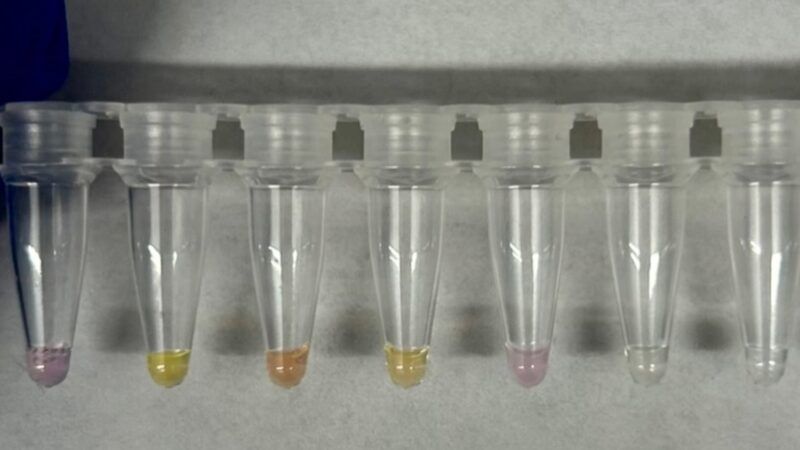DIY Genome Editing at Only $2 a Pop
Avoiding regulation, DIYBio becomes cheaper and more available.

CRISPRkit aims to make "gene editing accessible for everyone, everywhere." Aimed at K-12 students and people of any age curious about the how the revolutionary CRISPR gene-editing works, the DIY kits cost just $2 a piece (about $40 for a classroom). "Our mission is to democratize the tool that enables us to rewrite the code of life," declares the founders at the CRISPRkit website.
The advent of CRISPRkit is a measure of just how we have come in just eight years when Stanford University infectious disease expert Dr. David Relman warned, "I do not think that we want an unregulated, non-overseen community of freelance practitioners of this technology." Relman and others were concerned about the rising DIYBio movement, as exemplified by direct-to-consumer CRISPR editing packages such as those offered by The ODIN company (founded by biohacker Jo Zayner). Back in 2018, I used an ODIN kit to gene-edit some bacteria in my kitchen.
CRISPR is a tool that enables researchers—and now elementary school students—to edit DNA, much like cutting and pasting text in a document. They can remove, add, or change parts of the genetic code to study it, create new traits or fix deleterious mutations.
Largely the brainchild of a team of Stanford graduate and undergraduate students, a CRISPRkit contains vials of small circular DNA molecules called plasmids incorporating genes that generate proteins that turn red, yellow, or orange. In the experiment, students add CRISPR molecules that are designed to turn off the production of the colorful proteins. Whether or not the experiment is successful can be checked with a smartphone app.

"We wanted to make it as accessible as possible, so kids from all different socioeconomic backgrounds could get exposure to exciting technologies that are making waves in bioengineering and medicine – and hands-on experiments give them experience in what science is all about," said Marvin Collins one the developers of the CRISPRkit in a press release.
Those seeking a more ambitious introduction to the workings of CRISPR, The ODIN now offers numerous gene-editing kits, including ones for editing plants, bacteria, and yeast. And the bio-curious can also take advantage of the many citizen-science bio-labs to learn about and deploy bioengineering techniques.
Relman's concerns hark back to the dawn of the biotech revolution in the 1970s. Then researchers called for a moratorium on nascent bioengineering and later endorsed regulations that significantly slowed progress without enhancing safety. The good news is that CRISPRkit and other DIY bioengineering efforts are available because the research community avoided that mistake this time.


Show Comments (6)